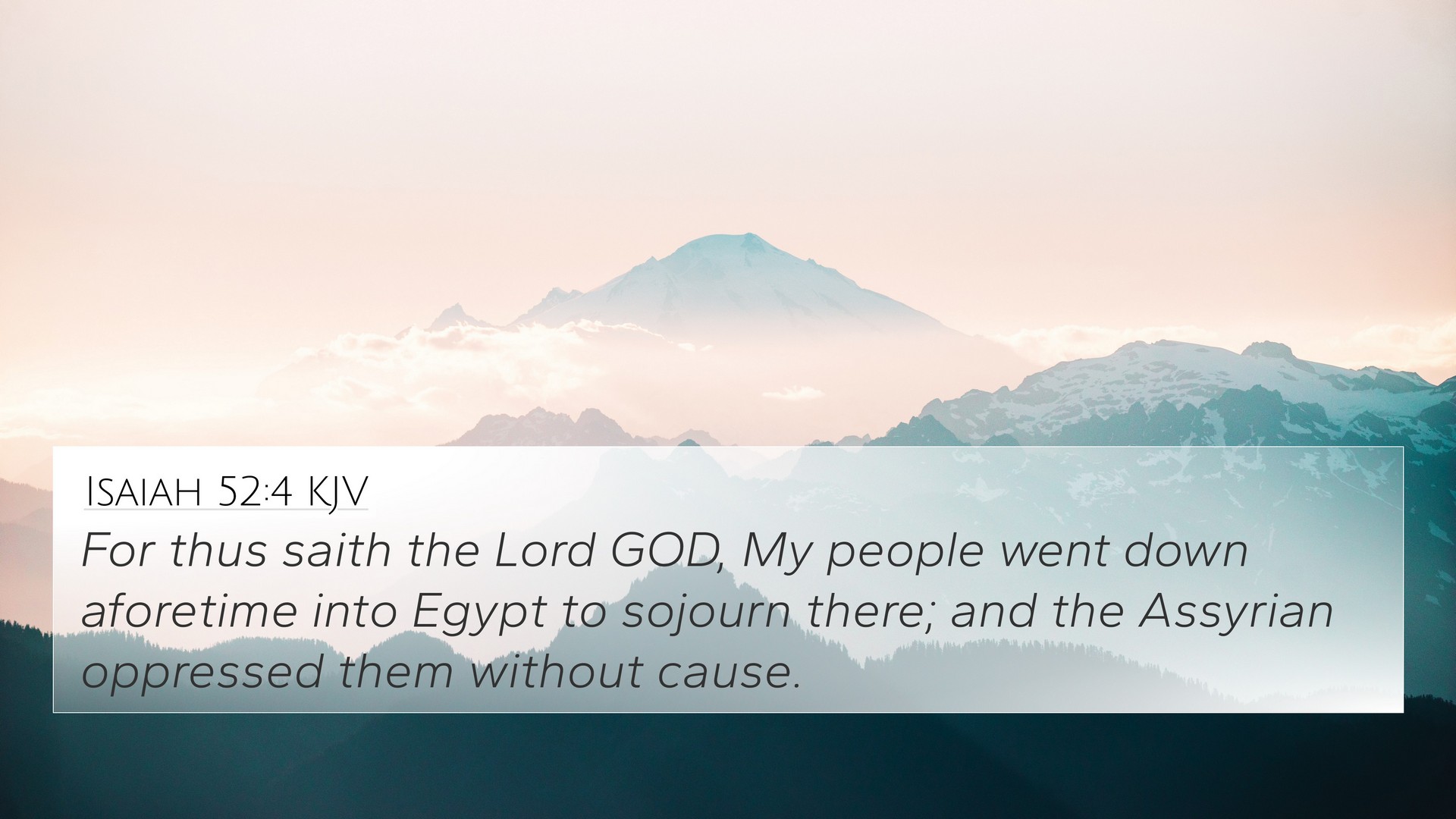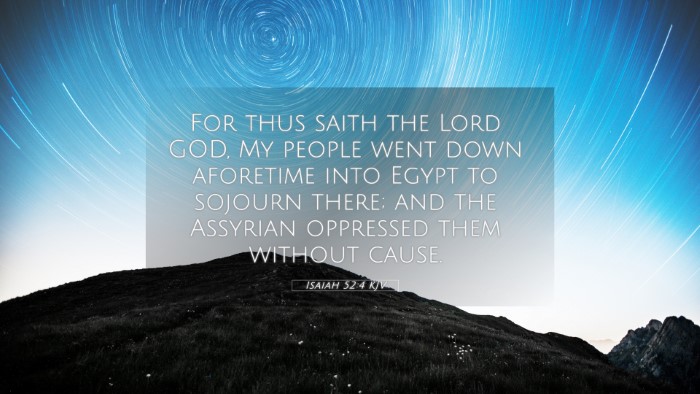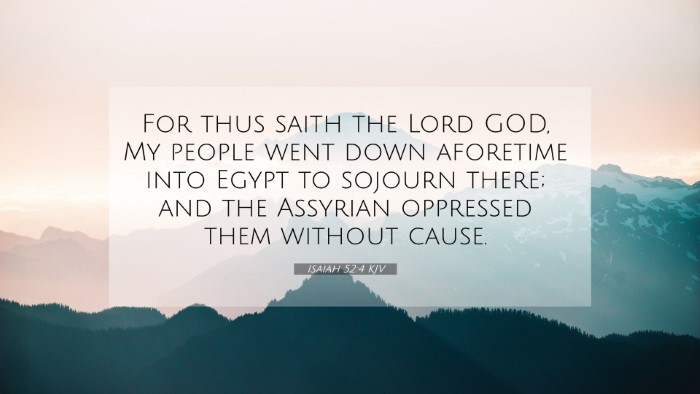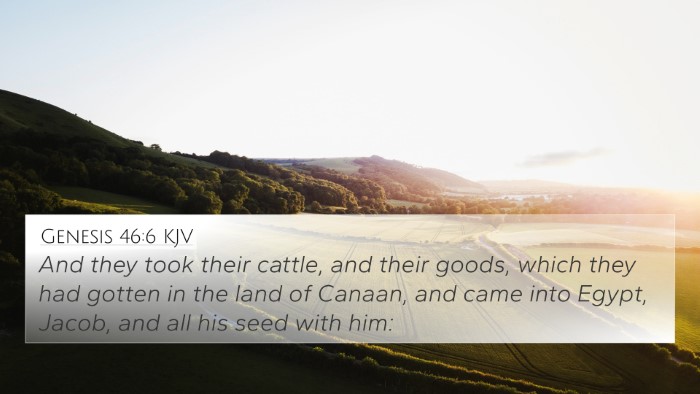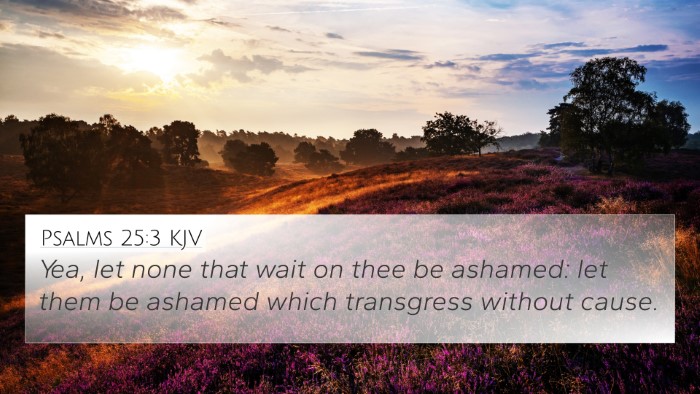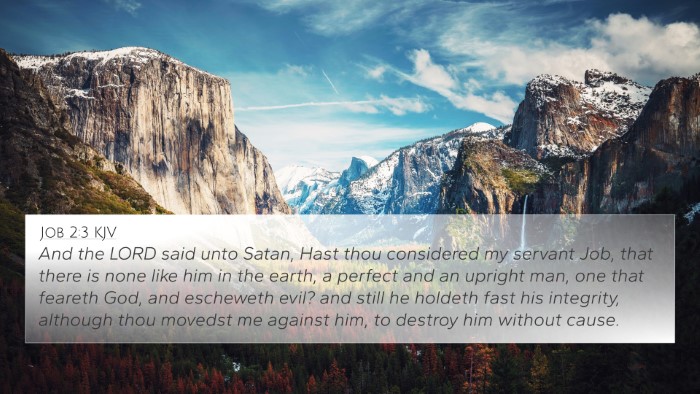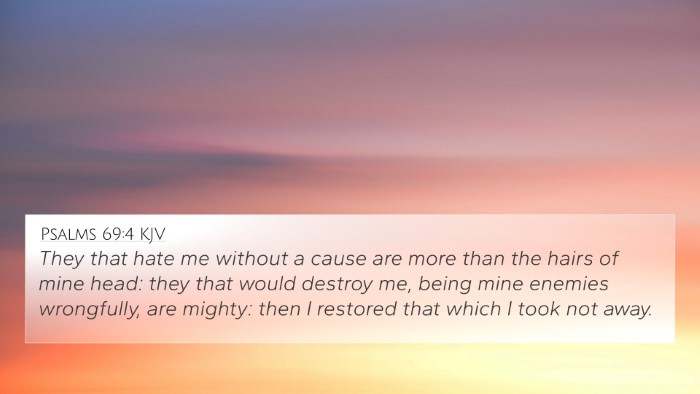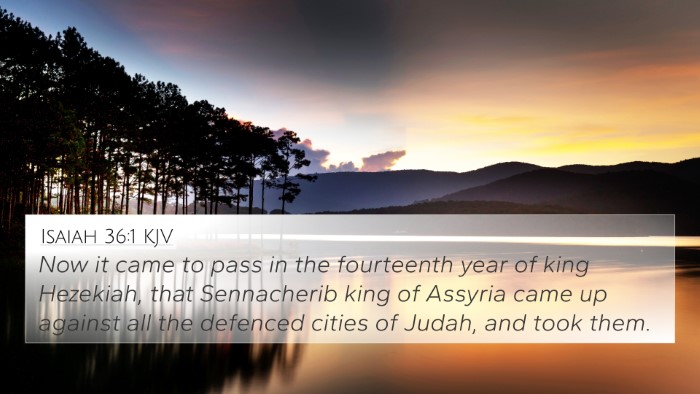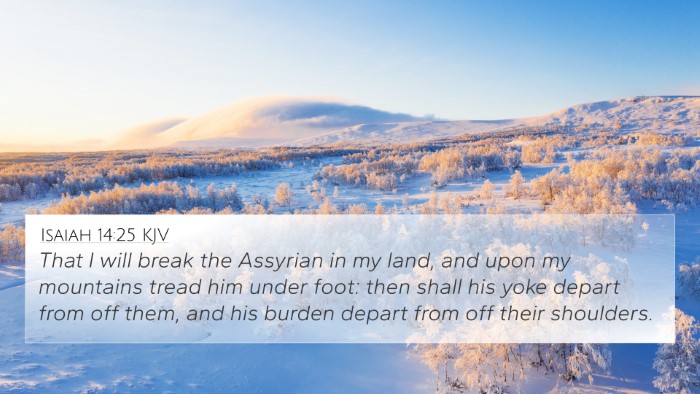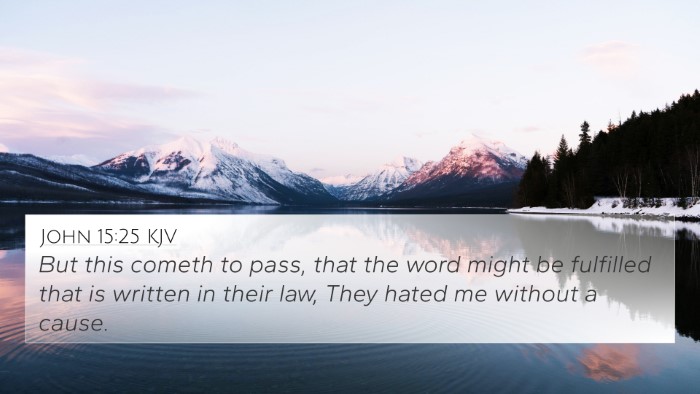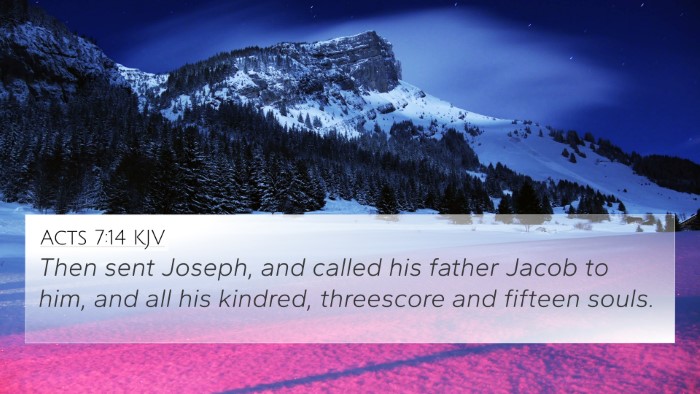Understanding Isaiah 52:4
Isaiah 52:4 reads: “For thus saith the Lord God, My people went down aforetime into Egypt to sojourn there; and the Assyrian oppressed them without cause.” This verse serves as a profound proclamation about God’s people and their historical experiences of oppression, but also heralds the promise of divine redemption.
Context of Isaiah 52:4
This verse appears within a larger passage addressing the plight and subsequent redemption of the Israelites. Not only does it reflect on past events, but it also points toward future deliverance, which enriches its theological significance.
Historical Background
The mention of Egypt refers to Israel’s historical oppression as captives in Egypt, as well as later oppressions by the Assyrians. This provides a rich tapestry for understanding God’s continual involvement in the narrative of His people.
Commentary Insights
-
Matthew Henry:
Henry emphasizes that God's people have often found themselves in dire circumstances due to their own actions and that divine deliverance is ultimately assured. This serves as a reassurance that past oppressions will not define their future.
-
Albert Barnes:
Barnes notes that this verse underscores the gratitude owed to God for Israel’s deliverance. He draws parallels between historical enslavement and the oppression of the Israelites by the Assyrians, signifying a need for reliance on God’s power to save.
-
Adam Clarke:
Clarke points out that the mention of the Assyrian captures the essence of Israel’s trials and highlights the contrast with the future freedom that God will bring, focusing on the continuous thread of divine justice.
Thematic Connections
Isaiah 52:4 has several significant thematic connections, serving as a rich basis for cross-referencing other Biblical texts:
- Exodus 3:7-10: God addresses the affliction of His people in Egypt.
- Isaiah 10:5: A warning against the Assyrian oppressor.
- Deuteronomy 26:5-7: A historical reminder of Israel's affliction in Egypt.
- Jeremiah 30:10: God’s promise of restoration following oppression.
- Micah 5:5: Prophecy regarding the ruler from Bethlehem, enhancing hope for Israel.
- Acts 7:9-10: Stephen's recounting of the sufferings of the patriarchs.
- Romans 8:18: Acknowledgment that current sufferings are not worth comparing with future glory.
- Revelation 21:4: The promise of wiping away all tears in future redemption.
- John 8:36: Jesus’ declaration of freedom to believers.
- Isaiah 61:1: The proclamation of good news to the afflicted and freedom to captives.
Understanding the Divine Promise
The intertwined history of suffering and redemption as seen in Isaiah 52:4 serves not only as a lesson for the Israelites but echoes through history into Christian theology, framing God as both a liberator and protector.
Applications for Today
This verse reminds current believers of God’s faithfulness through generations. It encourages reliance on God in times of distress, assuring that He is aware of suffering and is actively working for our good. It forms a basis for emotional and spiritual resilience in facing life’s trials.
Cross-Referencing for Deeper Understanding
Making connections within the Bible is crucial for a comprehensive understanding. Here’s how you can approach this:
- Utilizing a Bible Concordance: For identifying themes and linking Bible verses.
- Engaging in Cross-Reference Bible Study: Ensure a deeper understanding of the interconnectedness within scripture.
- Employing Cross-Referenced Themes: Create charts or lists of scriptures related to themes of oppression and deliverance.
- Applying Tools for Linking Bible Scriptures: Seek out resources that categorize and connect relevant verses.
- Participating in Comparative Bible Verse Analysis: Analyze how different authors and prophets address the concepts of suffering and redemption.
Conclusion
Isaiah 52:4 encapsulates the eternal struggle between oppression and God's redemptive grace, serving as an anchor for faith today. By engaging with other Scriptures through careful cross-referencing, one can build an expansive understanding of God’s purpose throughout the Bible. As we reflect on this verse, may we be reminded of the continuous thread that binds believers of all ages in the hope of liberation and divine promise.
